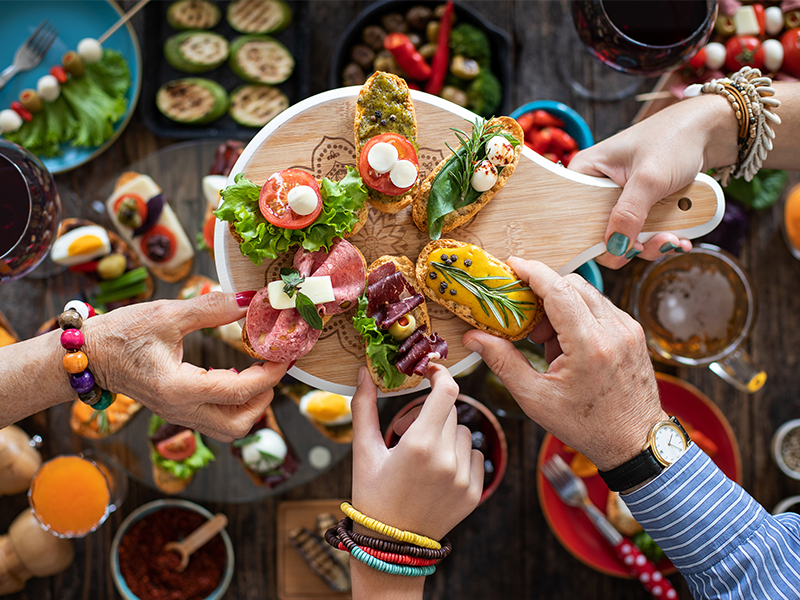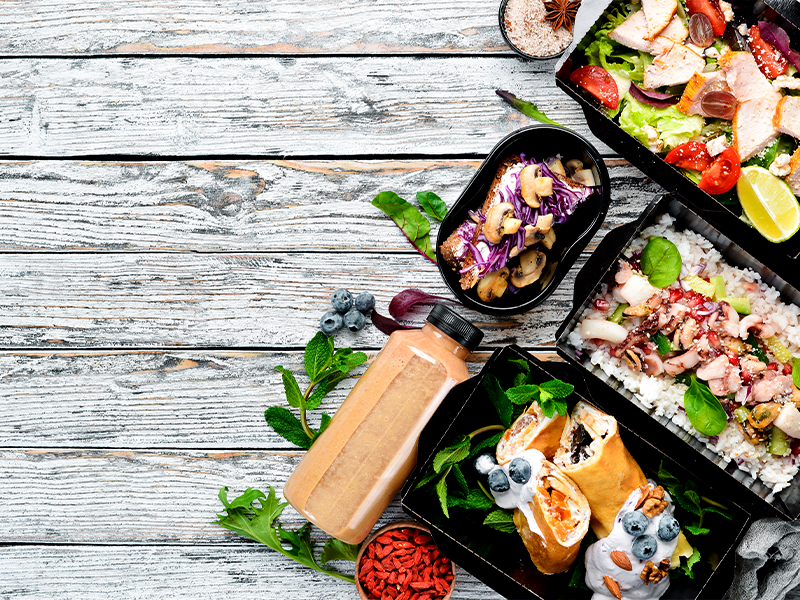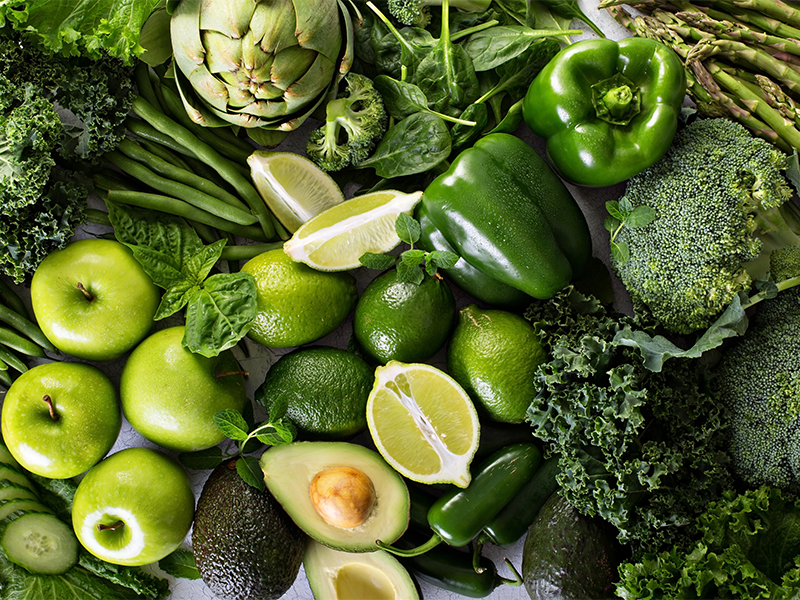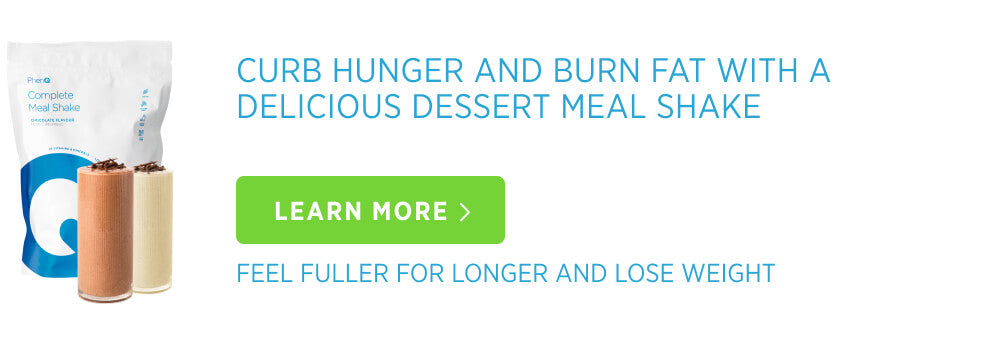Once you get stuck into the food you enjoy, pushing the “off” button can be challenging.
Whether it’s your favorite takeaway, candy, chips or ice cream, we can all get carried away sometimes.
But if you’re on a calorie-controlled diet, this type of overeating can derail all the hard work and willpower you’ve put in and lead to weight gain.
How can we slay this demon, eliminate poor eating habits and control what we eat?
Overcoming overeating may be easier than you think.
Why do we overeat?
There are many reasons why we overeat. We are simply enjoying ourselves and our food. Maybe we’re out with friends and lose track of exactly what we’re eating until we realize how full our stomachs feel.
Sometimes it’s related to emotions. Emotional eating can be an issue. Stress, PMT, sadness, or even tiredness can lead to us consuming more than we’d bargained for.
It’s also possible to overeat if you eat too quickly. In this situation, your stomach doesn’t feel as full yet, as your brain hasn’t registered it yet, and you, therefore, consume more before you feel like you should stop.
So let’s look at what we can do to avoid overeating and take back control of our food intake.
Related content: Top tips for better portion control for weight loss
What to put into practice to stop overeating
Even when you know why you might overeat, sometimes you need to set in place barriers or habits to stop yourself.
Getting into the habit of only eating when you are hungry and consuming the essential calories will help you reduce overeating.
Figure out your triggers…
It’s essential to consider whether a specific trigger causes you to overeat. Pinpointing this can help you stop binge eating or overindulging at mealtimes.
Are you overtired, stressed, depressed or even happy?
Celebrations can be a significant cause of overeating, so it’s not just the negative emotions at play when we overindulge.

Keep track of the times you feel you’ve overeaten and look back over time to see your emotional state when it happened. This way, you can hold an imaginary red flag up when you feel that way in the future and pay a little more attention to what you’re consuming.
Evict the culprits…
If there are particular items you can’t get enough of, such as unhealthy snacks or treats, ban them from your household.
You can replace them with healthier options that won’t do as much damage. If they’re near to hand and easily accessible, they’ll likely cause you to binge.
Yogurts, vegetables and cucumber slices are great for helping you feel like you’ve eaten without damaging your calorie control.
Also, when you’re shopping, don’t buy so much food. Not to the extent that you’ll be hungry, but so that you don’t buy too much and feel the need to consume it rather than waste it. It’s also a good idea not to have food in plain sight. Having your eyes light up when you walk into the kitchen and spot your favorite food will be a temptation.
Get plenty of sleep…
Sleep is an integral part of our daily routine, and not getting enough of it can lead to our bodies not performing as they should. This includes the part of the brain which tries to compensate when you’re not feeling 100%, and it can send the wrong signals to you, suggesting that food consumption might be the answer.

Studies have shown that those with less sleep tend to feel hungrier the next day. If you’re having trouble sleeping, we can highly recommend the many sleep apps which are currently available as a means to help you relax and get a decent amount of shuteye.
Related content: Sleep hygiene: what is it and how to improve it
Repackage the gifts…
Paying it forward is often a good idea, but if you’ve still got boxes of unopened chocolates hanging around from Christmas and New Year, why not get them out of sight by repackaging them as birthday gifts?
Anything that reduces the convenience of unhealthy eating in your household is good.
Structure your mealtimes…
With many of us having busy schedules, it’s not always easy to have a set time for our meals each day. Grabbing food “on the run” has become the norm these days and is a prime culprit for overeating.
Try to plan your meals so you can be assured that you’ll have eaten enough, but not too much and won’t be tempted into snacking in between meals.

If you are thinking about snacking, be mindful of how close you are to the next meal and try to convince yourself to wait.
Be aware of your eating habits…
Eating mindfully is very important. All too often, we eat too much without even realizing it, and our eating patterns become random. We can be distracted by conversations, reading or something we’re watching on TV, and before we know it, we’ve consumed three bags of chips.
These habits can throw your eating plans out of the window and derail all the hard work you’ve done to control your overindulging. Be mindful of what you’re eating and when you’re doing so.
Gain control with mindful eating. For example, go for healthy snacks first if you’re at a party with a massive spread of food. In doing so, you’ll feel fuller without consuming calories and won’t be tempted to binge on unhealthy choices.
Eat slowly to allow your brain to register a fuller stomach.
Calorie count- if you can…
It’s not the most fun thing to do, but if you want to lose weight, counting calories is a great way to ensure you put the brakes on when you feel you are consuming too much. It’s a great way to keep control and give you the peace of mind to know when to stop and when it’s safe to continue eating too!
Related content: The best diet apps: food, exercise and mental health apps to help you reach your goals
You don’t have to eat it all!..
Leaving food on your plate isn’t the end of the world, so don’t feel obliged to consume it all, especially if you’re not feeling all that hungry.
Ask yourself questions like “Am I enjoying this?” or “Do I need to eat all of it.”
Of course, we aren’t suggesting you waste food, but you can save it for another meal rather than stuff yourself.
Making yourself smaller portions is another good option, but be sure not to leave yourself feeling hungry.
Fruit and Veg are your allies…
Not only are they packed full of essential vitamins and minerals, but they’ll also help you feel fuller sooner and without packing in many calories. Salad is another good option, too and having a healthy proportion of healthier items on your plate means less space for the high-cal options.

Fibre also helps to feed the ‘good’ bacteria in the gut, and a healthy gut means a healthier you.
Related content: How to improve gut health
Don’t allow yourself to be pressured…
When being offered food by others, it’s fine to turn it down. Don’t allow others to dictate what you are eating. This is another step in taking control of your dietary habits, and it’s crucial to make others aware of your food choices so that you are not “force-fed.”
Stand firm, and don’t be afraid to say “no.”
Control your overeating…There are plenty of options for taking control of your food consumption. Staying strong and being mindful of what you’re eating will go a long way to ensuring you keep on the right path.
Meal planning, controlling the snacking and, above all else, looking after your general health are critical factors in the process.
It’s important to state that none of these suggestions should stop you from enjoying food any less. Eating is a pleasure, and it should stay that way, but with added self-control, you’ll hopefully enjoy it even more.
Sometimes you need a helping hand to avoid weight gain, especially regarding appetite suppression. PhenQ is a powerful slimming formula combining multiple weight loss benefits, and it will help you to burn stored fat and suppress your appetite to help you avoid overeating.




